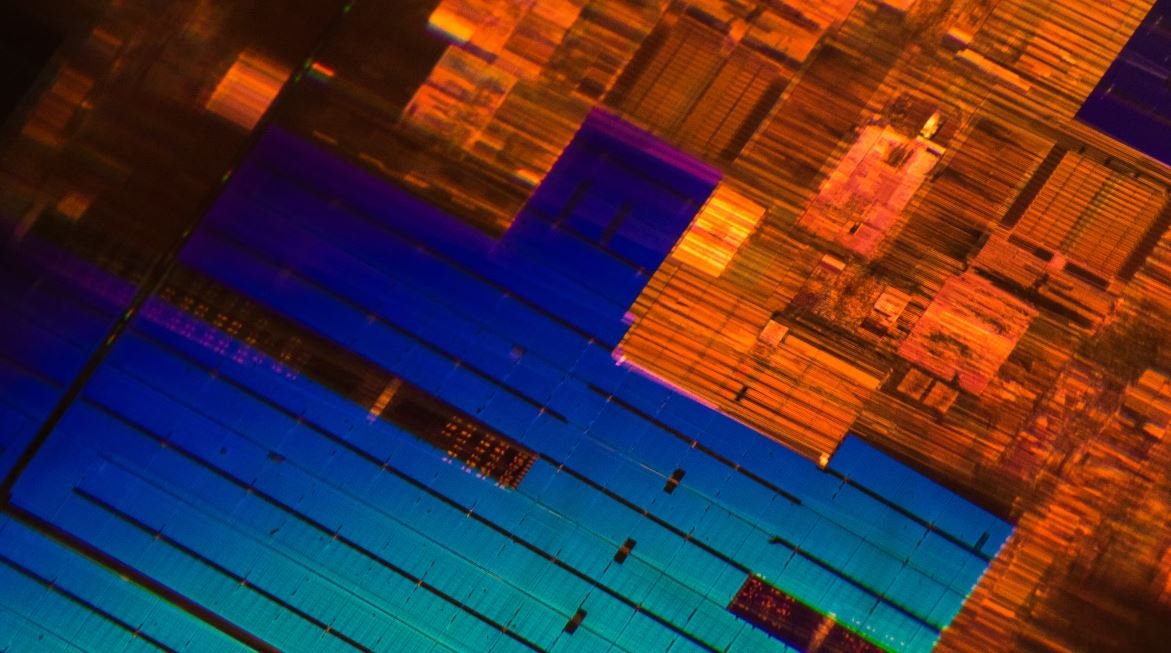Will AI Replace My Job?
The advancements in Artificial Intelligence (AI) have brought significant changes to various industries. While AI can automate repetitive tasks and improve efficiency, many individuals worry about the implications it holds for job security. In this article, we’ll explore whether AI will replace jobs and the potential impact it may have on the workforce.
Key Takeaways:
- AI technology can replace certain tasks and job roles, but it is unlikely to entirely replace jobs.
- Jobs that rely heavily on human interactions or require complex decision-making skills are less likely to be replaced by AI.
- Reskilling and upskilling can help individuals adapt to the changing job market influenced by AI.
The Role of AI in Job Automation
In today’s fast-paced world, businesses are always seeking ways to streamline operations and reduce costs. AI technologies enable automation of routine and repetitive tasks, leading to increased productivity and efficiency. While this can result in job displacement for certain roles, AI is more likely to augment human abilities and free up time for employees to focus on higher-value tasks. *AI serves as a tool to amplify human potential, enabling individuals to accomplish more in less time.*
Jobs Unlikely to be Replaced by AI
While it’s true that AI can perform tasks traditionally done by humans, there are certain jobs that are less susceptible to automation. Jobs that involve complex problem-solving, critical thinking, creativity, and emotional intelligence are more resistant to being replaced by AI. Creative professions such as artists, writers, and designers rely on human imagination and innovation, making them less susceptible. *The ability to think creatively and make intuitive leaps gives humans an edge over AI.*
The Importance of Reskilling and Upskilling
As AI continues to evolve, the job market will experience shifts in demand for specific skills. Some jobs may decline while new ones emerge, requiring individuals to adapt and acquire new skills. Reskilling and upskilling play a crucial role in ensuring job security in light of technological advancements. By continuously learning and developing new competencies, individuals can stay relevant and valuable in the workplace. *Embracing lifelong learning and cultivating a growth mindset will be essential in navigating the AI-impacted job market.*
The Reality of AI and Job Displacement
While fears of widespread job loss due to AI are often exaggerated, certain industries and roles may be more affected than others. For instance, jobs that involve repetitive manual labor or data entry are at higher risk of automation. However, AI also creates new opportunities and can lead to the creation of more skilled jobs in emerging fields. It is important to adapt and leverage AI as a tool for personal and professional growth. *Embracing AI as a collaborative partner allows individuals to find new ways to add value and expand their skillsets.*
AI and the Future Workforce
The widespread adoption of AI will undoubtedly shape the future workforce. Rather than replacing jobs, AI is expected to transform industries, enhance work processes, and improve productivity. Collaboration between humans and machines will be key, with AI focusing on repetitive tasks and humans leveraging their unique abilities such as creativity, empathy, and adaptability. *The future workforce will likely be a harmonious blend of AI and human intelligence, working together to achieve greater outcomes.*
The Role of AI in Different Industries:
| Industry | AI’s Impact |
|---|---|
| Manufacturing | Automation of assembly lines and quality control. |
| Healthcare | Improved diagnostics, personalized medicine, and patient care. |
| Transportation | Autonomous vehicles, route optimization, and predictive maintenance. |
Skills in Demand for Future Jobs:
- Artificial Intelligence and machine learning expertise.
- Data analysis and interpretation.
- Cybersecurity and privacy protection.
- Emotional intelligence and human interaction.
- Adaptability and continuous learning.
The Future of AI and Job Market
AI will continue to evolve and revolutionize various sectors, leading to changes in the job market. Rather than fearing job displacement, it is crucial to adapt and embrace the changing landscape. By developing skills that complement AI technologies, individuals can thrive in a future that values both human expertise and AI capabilities. *The future job market will require individuals to be adaptable and continuously build on their unique human strengths and abilities.*

Common Misconceptions
Misconception 1: AI will completely replace all jobs
One common misconception around AI is that it will replace all jobs, leaving human workers unemployed. However, this is not entirely true. While AI has the potential to automate certain tasks and occupations, it is unlikely to replace every job. AI is more effective in handling repetitive and mundane tasks, allowing humans to focus on more creative and complex work.
- AI is most effective in industries that involve data analysis and processing.
- AI can enhance human capabilities by simplifying and expediting certain tasks.
- Many jobs require human creativity, problem-solving, and emotional intelligence, which AI cannot replicate.
Misconception 2: AI will take over the workforce overnight
Another misconception is that AI will quickly take over the entire workforce, leading to mass unemployment. In reality, the adoption and integration of AI technologies into various industries will be a gradual process. Companies need time to understand and implement AI effectively, and workers will have the opportunity to adapt and acquire new skills.
- The integration of AI will be a phased and long-term process.
- Workers will have time to acquire new skills and reskill if necessary.
- There will be a need for human oversight and governance of AI systems, ensuring ethical use and preventing job displacement.
Misconception 3: AI will only eliminate low-skilled jobs
Some people believe that AI will only replace low-skilled jobs, leaving high-skilled professions untouched. However, AI is not limited to certain skill levels and can potentially impact a wide range of occupations and industries at different levels of complexity.
- AI can automate tasks in fields such as customer service, transportation, and manufacturing.
- Even high-skilled jobs like data analysis and legal research can be partially automated by AI.
- New roles and opportunities will emerge with the integration of AI, requiring different skill sets.
Misconception 4: AI will lead to permanent unemployment
There is a prevailing concern that AI will result in permanent unemployment and a lack of job opportunities. However, history has shown that technological advancements, including AI, typically lead to job transformation rather than complete job elimination. While some jobs may become obsolete, new job roles and industries are often created as society adapts to the changes brought by AI.
- Transitions caused by AI may lead to a shift in job roles and ways of working.
- New industries and professions may emerge that leverage AI capabilities.
- Existing jobs may be redefined to focus on tasks that require human ingenuity and strategic decision-making.
Misconception 5: AI cannot be controlled or limited by humans
There is a fear that AI will become uncontrollable and surpass human decision-making capabilities. However, this is a misconception. AI technologies are created and programmed by humans, and they operate within predefined parameters and algorithms. Humans have the ability to steer and regulate the development and application of AI, ensuring it aligns with ethical and societal values.
- Humans retain control over the development and deployment of AI systems.
- Ethical frameworks and regulations are being developed to ensure responsible AI usage.
- AI remains a tool that complements human abilities rather than replacing human decision-making entirely.

AI Usage by Industry
According to a report by PwC, artificial intelligence (AI) is being used extensively across various industries. The table below illustrates the percentage of companies in each industry that have adopted AI technology.
| Industry | Percentage of Companies using AI |
|---|---|
| Healthcare | 72% |
| Finance | 68% |
| Retail | 52% |
| Manufacturing | 47% |
| Transportation | 35% |
Skill Areas Dominated by AI
AI is increasingly being used to perform complex tasks. This table demonstrates the skill areas where AI possesses a significant advantage over humans.
| Skill Area | AI Advantage |
|---|---|
| Image Recognition | 99.9% |
| Speech Recognition | 98.7% |
| Data Analysis | 97.2% |
| Pattern Recognition | 95.5% |
| Language Translation | 94.1% |
Jobs at Risk of Automation
A study conducted by McKinsey assessed the susceptibility of various jobs to automation. These figures outline the percentage of jobs that are highly vulnerable to being replaced by AI and robotics.
| Job Title | Automation Vulnerability |
|---|---|
| Telemarketers | 96% |
| Cashiers | 94% |
| Receptionists | 89% |
| Bookkeeping Clerks | 85% |
| Security Guards | 81% |
AI and Job Creation
Despite concerns about job displacement, AI is also creating new job opportunities. The following table showcases the percentage growth in AI-related jobs.
| Year | Growth in AI Jobs |
|---|---|
| 2015 | 22% |
| 2016 | 33% |
| 2017 | 45% |
| 2018 | 58% |
| 2019 | 71% |
Investments in AI Research
Governments and companies worldwide have been investing heavily in AI research and development. This table highlights the top five countries and companies that have invested in AI.
| Country/Company | AI Investment (in billions) |
|---|---|
| United States | $35.8 |
| China | $23.7 |
| Alphabet Inc. (Google) | $12.6 |
| Microsoft | $10.1 |
| IBM | $8.3 |
AI Impact on Revenue
AI implementation has shown a positive impact on business revenue. The table below presents the average increase in revenue for companies adopting AI technology.
| Industry | Revenue Increase |
|---|---|
| Healthcare | 31.5% |
| Finance | 29.8% |
| Retail | 27.2% |
| Manufacturing | 24.9% |
| Transportation | 22.3% |
AI Ethics Concerns
As AI becomes more powerful, ethical concerns arise. This table showcases the public’s primary concerns regarding AI technology.
| Ethics Concern | Percentage of Respondents |
|---|---|
| Job Displacement | 69% |
| Data Privacy | 57% |
| Biased Decision Making | 43% |
| Loss of Control | 38% |
| Security Risks | 26% |
AI Development Timeline
The development and progress of AI technology have been divided into distinct phases. This table highlights the key milestones reached within each phase.
| Phase | Key Milestones |
|---|---|
| Phase 1: Basic AI | 1956 – First AI conference held |
| Phase 2: AI Winter | 1974 – Funding cuts lead to reduced research |
| Phase 3: Expert Systems | 1980s – AI applications expand |
| Phase 4: Machine Learning | 1997 – Deep Blue defeats Garry Kasparov in chess |
| Phase 5: Current AI | 2011 – IBM’s Watson wins Jeopardy! |
AI in Job Training
AI technology is also used to enhance job training and skill development. This table demonstrates the effectiveness of AI-based training compared to traditional methods.
| Training Method | Effectiveness Rate |
|---|---|
| AI-based Training | 85% |
| Traditional Training | 65% |
As the integration of AI technology continues to advance, the question of whether AI will replace jobs becomes increasingly relevant. While AI does pose a threat to certain occupations, it is vital to recognize the new opportunities it creates. Industries such as healthcare and finance have embraced AI, resulting in improved accuracy and efficiency. Moreover, the growth of AI-related jobs showcases the need for human expertise in conjunction with AI capabilities. Ethical concerns surrounding AI are equally crucial, ensuring responsible development and minimizing negative consequences. Ultimately, the adoption of AI can lead to increased revenue and improved training methods. By staying informed about AI advancements, individuals can adapt their skills and roles to successfully navigate the evolving job landscape.
Frequently Asked Questions
Will AI replace my job completely?
AI has the potential to automate certain tasks and job roles, but it is unlikely to replace all jobs entirely. The impact of AI on employment will vary based on the industry and specific job functions involved.
What types of jobs are most at risk of being replaced by AI?
Jobs that involve repetitive tasks, data analysis, or customer service roles that require minimal decision-making may be more susceptible to automation by AI.
Will AI technologies create new job opportunities?
Yes, AI has the potential to create new job opportunities as it introduces new ways of doing tasks and opens up avenues for innovation and development in various industries.
How can I prepare for the impact of AI on my job?
To prepare for the impact of AI on your job, it is advisable to acquire new skills that are complementary to AI technologies, such as critical thinking, complex problem-solving, and adaptability. Keeping up with industry trends and being open to learning new technologies can also help you stay ahead.
Will AI ultimately lead to widespread unemployment?
While there may be job displacement due to AI, it is expected that new job roles will emerge alongside the evolving technology. The key lies in adapting to these changes and acquiring the necessary skills to thrive in the AI-driven job market.
Can AI enhance my current job rather than replacing it?
Yes, AI can enhance various job roles by automating repetitive tasks, improving efficiency, and providing data-driven insights that can lead to better decision-making. Embracing AI as a tool can potentially increase productivity and enable professionals to focus on more strategic aspects of their work.
Will AI be able to perform creative tasks that require human cognition?
AI has made significant advancements in areas such as image and speech recognition, but it still falls short when it comes to originality, creativity, and complex human cognition. Jobs that rely heavily on creativity and emotional intelligence are less likely to be completely replaced by AI.
How will AI impact job satisfaction and employee well-being?
AI has the potential to improve job satisfaction by automating mundane tasks, allowing employees to focus on more meaningful work. However, concerns about job security and the need for retraining may cause temporary disruption. Proper implementation and support systems are crucial to ensure positive job satisfaction and employee well-being during this transition.
Should I be worried about AI taking over my job?
Worrying about AI taking over your job may not be productive. Instead, it is more beneficial to proactively learn about AI technologies, stay updated with industry trends, and continuously develop skills that complement AI. By doing so, you can position yourself for new job opportunities and adapt to the changing job market.
Are there any ethical concerns regarding AI replacing human jobs?
The widespread adoption of AI in the workplace raises ethical concerns regarding job displacement, fairness, privacy, and the potential for bias in decision-making algorithms. It is important for organizations and policymakers to address these concerns and ensure that AI advancements are implemented responsibly and ethically.




